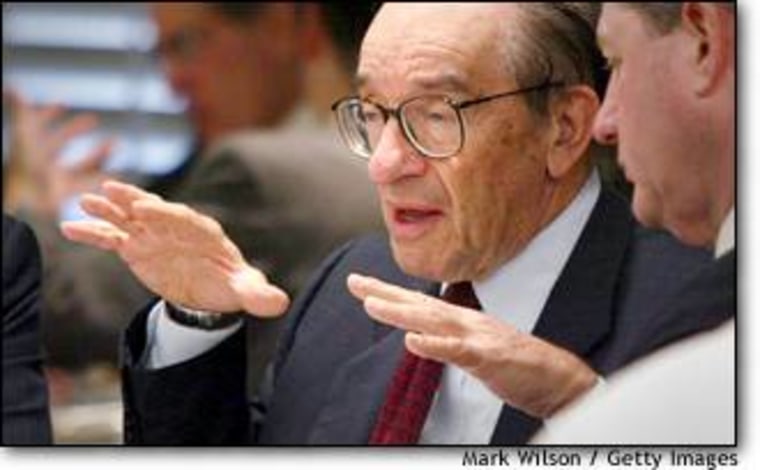U.S. economic activity was sluggish across the country and labor markets were “lackluster,” the Federal Reserve said Wednesday in its latest “Beige Book” report. The survey leaves the door open to a possible interest rate cut when Fed policy-makers next meet Nov. 6, the day after congressional midterm elections.
“Most Districts reported that economic activity remained sluggish in September and early October,” the report said, summarizing anecdotal information from the Fed’s 12 regional banks.
“Retail sales were weak across the nation, including some declines in motor vehicle sales from very high levels,” the Fed said. “Labor markets were lackluster in all districts.”
Stock prices rose after the report’s afternoon release, apparently on the theory that the Fed now is more likely to cut rates in the near term. The Dow Jones industrial average was down about 100 points when the report was released, then rose to close the session two hours later with a gain of 44 points, or 0.5 percent. But traders and economists generally expect the central bank to wait for more data before cutting short-term rates, possibly in December or January.
“I don’t think it guarantees an easing, but I do think it strengthens the case for an easing,” said Joe Abate, a senior economist at Lehman Bros. He said the anecdotal evidence of a slowdown is likely to be backed up in coming weeks by data showing rising unemployment, slowing retail sales and declining consumer confidence.
Of the Fed’s 12 regional districts, only the heartland states represented by the St. Louis bank reported significant improvement over the past two months. The big San Francisco-based 12th District, covering nine Western states, said activity “grew modestly,” while other districts reported softening or even signs of contraction.
At its last meeting Sept. 24, the Fed’s Open Market Committee left interest rates unchanged but with unusual dissension, with two of 12 voting members favoring a rate cut. And in recent weeks other central bankers have warned of a fragile economy, said Mary Ann Hurley, a bond trader at D.A. Davidson Co. in Seattle.
“The Fed as a whole does not like to downtalk the economy, but the data is not matching what their yak has been saying,” Hurley said. “Consumer spending is slowing dramatically, and that has been one of the main factors holding up the economy.”
Still, futures markets currently indicate only a 30 percent chance the Fed will cut rates Nov. 6, compared with nearly 100 percent chance seen just a few weeks ago.
Fed Chairman Alan Greenspan has been conspicuously absent from the public debate, perhaps reflecting the unusually divergent views of a board the tends to operate by consensus.
In a speech Wednesday where Greenspan easily could have addressed the current economic climate he focused on productivity, saying most of the surge in U.S. productivity since the mid-1990s appears likely to remain intact in coming years.
“At minimum ... it seems reasonable to conclude that the step-up in the pace of structural productivity that occurred in the latter part of the 1990s has not, as yet, faltered,” Greenspan said in remarks prepared for a conference sponsored by the Labor Department.
Abate called the topic esoteric and noted that Greenspan illustrated his remarks with references to the development of the electric dynamo and internal combustion engine more than a century ago.
“That is a sign that he is deliberately making an an effort not to speak about the economy,” Abate said.
He said Fed officials probably are concerned that with the benchmark federal funds rate at a 40-year low of 1.75 percent, they are running perilously close to zero and need to hoard their remaining ammunition. “If the fed funds rate was 6 percent there is no question they would have eased by now,” he said.
